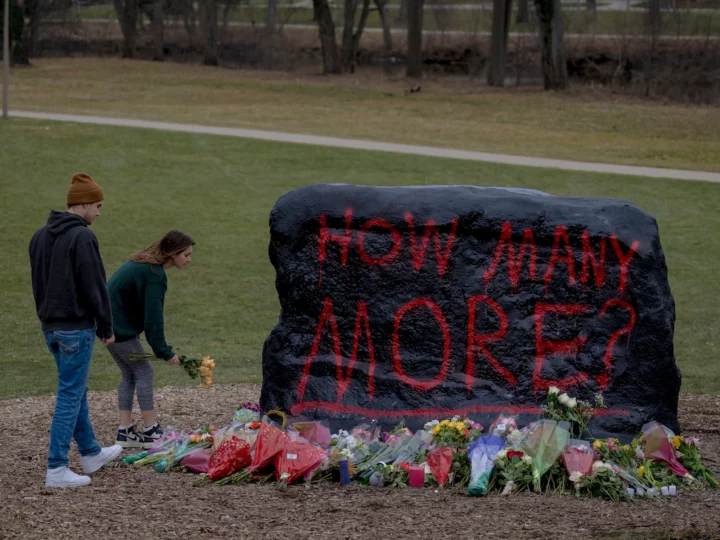This piece of mine, written Friday, appears on today’s (Monday) op/ed page of the New York Times.

Raise High the P.R. Blitz
by Jennifer Finney Boylan
THE national bereavement over the death of J. D. Salinger provided a strangely public moment in the career of a writer who’d become best known, in recent years, for his reclusiveness. There are other American writers famous for shunning the public eye — Thomas Pynchon leaps to mind — but Mr. Salinger’s seclusion was unique. By the end of his life, he may have become better known for his solitude than for his imagination.
In a way, nothing succeeds like invisibility. In America, we revere artists who won’t do the thing they’re famous for. We revere Glenn Gould, who gave up performing; Greta Garbo, who gave up acting; and Michael Jordan, who not only gave up basketball (at which he was gifted), but then, perversely, took up baseball (at which he was not).
The more steadfastly they refuse us, the more infuriatingly desirable they become, like that boy we just know loves us but who cannot bring himself to call. How can the satirist Tom Lehrer, who long ago gave up performing music for teaching mathematics, not miss writing songs like “Poisoning Pigeons in the Park”? (Whenever he’s asked when he will return to his musical career, Mr. Lehrer likes to reply, “Oh, did hell freeze over?”)
“There is a marvelous peace in not publishing,” Mr. Salinger told The Times in 1974. “Publishing is a terrible invasion of my privacy…. I love to write. But I write just for myself and my own pleasure.”
As a teacher of writing, I frequently hear young authors echo Mr. Salinger’s words, that they’re writing primarily to satisfy themselves. It’s hard to disagree with that on the surface; writing can be great fun. But to create fiction — or nonfiction, for that matter — without any thought of a reader seems creepy to me, the ultimate exercise in self-indulgence.
Of course, we all yearn to live in that kind of self-contained world, now and again. There is plenty to envy about an imaginative universe detached from the world of commerce. Writing just for oneself and one’s own pleasure? Nice work if you can get it.
What I suspect, though, is that fame through invisibility may well belong to a generation that is passing, or passed.
In contemporary America, a writer’s life is more than just the endless, thankless task of writing itself, which E. B. White is said to have called “hard work and bad for the health.” There is also the humiliating, cringe-inducing necessity of becoming a public person, of book tours and radio interviews and, if you’re extremely lucky (as I was), a trip to Oprah’s couch (or in my case, four).
There were a lot of things on my mind when I wrote “She’s Not There,” my memoir of being transgender, during a particularly cold Maine winter, but the green room of the “Today” Show wasn’t one of them. Yet there I was, a year or two later, with the actress Lucy Liu looking over at me and saying: “I have a new movie. What are you on for?”
“Sex change,” I said, and wondered how it was that I had wound up in this situation. Was this what it means now, to be a person of letters? Discussing one’s genitalia with an actress from “Charlie’s Angels”?
When J. D. Salinger disappeared, invisibility was still a perfectly viable — if enigmatic — way to be a successful literary figure in America. But now that the desperate economics of publishing more or less demand that “public relations” become part of a writer’s professional toolkit, being a recluse is a harder stunt to pull off. In order to sustain their careers, plenty of shy, awkward authors — people who chose this profession for the very reason that it’s fundamentally a private activity — have sacrificed their solitude for Web sites, blogs, Twitter accounts and videos of themselves on YouTube. Somehow, these items weren’t on the syllabus in John Barth’s class at Johns Hopkins.
I’ve always thought of encountering readers — of having any readers at all — as an unbelievable gift. Giving lectures, signing books, sitting hopefully behind a table at a bookstore in Wichita Falls: these rituals may be humbling, but I’ve never forgotten the fact that thousands of unpublished writers in this country would give anything to be humiliated in exactly this way. Of all the mortifications to be found in an author’s life, probably none hurts as much as the kind you get from not being able to share your work with another soul.
In “The Catcher in the Rye,” Holden Caulfield famously observes, “What really knocks me out is a book that, when you’re all done reading it, you wish the author that wrote it was a terrific friend of yours.” What was sad and strange about J. D. Salinger is not that he didn’t want to be our terrific friend. It’s that, at the pinnacle of his fame, he yearned for the very thing many writers fear most — a world without readers.
2 Comments
-
Phoney!
-
Nyuk, nyuk, nyuk, Devin.




